Hundred flowers bloom
After more than 2 years of being heavily impacted by the COVID-19 pandemic, higher education in 2022 has quickly stabilized and developed strongly in line with the trend of international integration. Internationalization in higher education training is becoming a trend that many Vietnamese universities are pursuing. According to statistics from the Ministry of Education and Training (MOET), there are currently more than 300 joint training programs with foreign countries in operation nationwide. In addition, the activities of training cooperation, exchange, and exchange of lecturers and students in recent times have been vibrant, bringing a brighter color to the country's higher education.
This trend is growing more and more, building a university model towards standardization according to international criteria, bringing the curriculum and programs of international universities into teaching in universities is opening a new era in university training, improving the quality of domestic human resources.
At Hanoi Law University, in addition to the basic system, the school organizes a joint bachelor's training program between Hanoi Law University and the University of Arizona, USA; National Economics University has a joint program with Lincoln University, UK; a joint master's training program between National Economics University and Australian National University; Hanoi Foreign Trade University currently has cooperative relations with over 150 universities and international educational and training organizations.
The school currently has 18 joint training programs with more than 20 partner universities from 10 countries, including 8 undergraduate training programs, 10 master training programs... In addition, there are many university models such as Vietnam - Japan University, Vietnam - France University, Vietnam - Germany University... which are systematically built, with a scale based on the model of advanced universities abroad as a measure, gradually gaining the trust of parents and students.

International training cooperation is a bridge for students to access modern and qualityeducation . Photo: TL
With the diversity of training models and international cooperation, it shows that the integration process in higher education is taking place strongly, students increasingly have the opportunity to choose to study in an international-class educational environment without having to study abroad.
Sharing about the training cooperation activities, Professor Tran Thi Van Hoa - Vice Principal of the National Economics University said that according to the strategic development orientation of the school, this is the way the school absorbs and spreads from the training cooperation process with prestigious universities in the world.
Accordingly, through the process of working with international institutions, the school has absorbed technology and understood the criteria and standards that international educational institutions set to maintain the attractiveness of their study programs. From there, the National Economics University has developed an environment and study programs in English that meet international standards and set regulations for regular programs that also meet international standards.
In addition, the school also conducts exchanges between Vietnamese and international degree programs, aiming at international recognition of Vietnamese training programs. This also contributes to attracting foreign students to study in Vietnam, thereby increasing the internationalization of the learning environment.
Dr. Nguyen Van Cuong - who defended his PhD thesis in educational science at Potsdam University, Germany in 1995, previously worked at Potsdam University, Germany, and is now an independent educational consultant, believes that international cooperation plays an important role in university development in the context of internationalization and globalization.
International cooperation between universities will support domestic universities to modernize their programs, content, methods, and training facilities in line with the trend of international integration in university education, improve the capacity of the teaching staff and the quality of university education, and promote the influence of the school internationally. International cooperation increases the attractiveness and opens up many learning opportunities for students. International cooperation in higher education includes many different forms, such as exchanges, scientific research cooperation, lecturer exchanges, guest lecturers, student exchanges, and joint training courses.

International cooperation will improve the quality of domestic university training (illustrative photo - internet source)
Provide more opportunities for learners
Analyzing this trend further, in an interview with the reporter of the Journalist & Public Opinion Newspaper, Mr. Le Truong Tung - Chairman of the Board of FPT University said that in the context of the globalized economic integration, universities cannot close. Because universities are responsible for training human resources to participate in the global economy. In fact, the quality of university education is a measure of the competitiveness in the global economy of each country.
In that context, the goal of training human resources who can participate in globalization in the future is that there is no reason for universities to close down and operate alone. “International cooperation in higher education training is almost mandatory. If any school does not implement international cooperation, the output of students will have problems. Students will not have enough international knowledge and skills,” said Mr. Le Truong Tung.
According to Mr. Le Truong Tung, each university currently has its own strategy in international cooperation, each university cooperates internationally at different levels. The mission of universities is to train students, international cooperation will bring benefits to learners, international cooperation will help students have foreign language skills and many other global skills.
Using the curriculum and teaching methods of foreign universities is a way to narrow the gap in training quality. Students can study abroad at a tuition fee that is not as high as studying abroad. Through cooperation, the school understands the advantages of foreign programs.
Assessing the process of international cooperation in university training, in an interview with a reporter from the Journalist & Public Opinion Newspaper, expert Nguyen Song Hien (currently a member of the Editorial Board of the International Journal of Training Research, London; member of the Association of International Educators (NAFSA); member of the Australian Independent Education Federation) said that the training cooperation with universities of developed countries in Vietnam compared to countries in the Southeast Asian region such as Singapore, Thailand, or Malaysia is relatively late.

An exchange session at the central conference room of British University Vietnam.
“It was not until the 90s, when the country opened up higher education, that Vietnam began to have the opportunity to develop. It was not until 2004, after the Ministry of Education and Training first introduced a system of educational quality accreditation according to US standards to assess the quality of higher education, that higher education in Vietnam had a qualitative change and approached closer to the common standards of higher education in developed countries.
But it was not until 2012 that regulations on training cooperation with foreign countries were issued. Thus, this policy has only been implemented in the last 10 years. It can be seen that although this policy was born late, within just 1 decade it has contributed to creating a vivid and diverse picture for Vietnamese higher education. It meets the practical needs of the labor market in all fields and initially catches up with the trend of international integration" - expert Nguyen Song Hien analyzed.
Quality - the core issue
In international cooperation in higher education training, the issue of quality assurance and substantive cooperation is the most essential issue. According to Mr. Dao Ngoc Tien, Vice President of Foreign Trade University, there are two important factors that need to be focused on to ensure the outstanding quality of joint training programs with foreign countries.
The first factor is to find the strengths of each side (strengths in the training programs of the school and the partner institution) in order to promote the strengths of each side, creating a product with outstanding features. The second factor is that schools must think about exporting, bringing training programs abroad.
“Training cooperation is not only a bilateral cooperation but also a multilateral one, with many parties participating to meet global needs. We need to think further, have a strategy to find aspects and outstanding points to improve the quality of international training cooperation programs,” Mr. Dao Ngoc Tien emphasized.
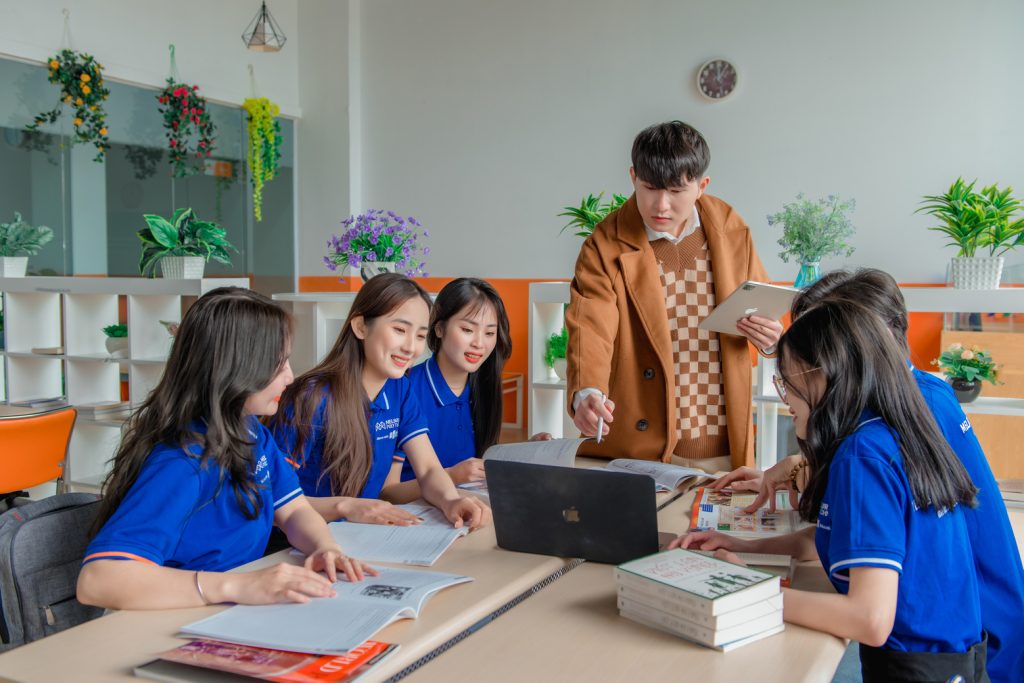
The issue of training quality in international cooperation is a matter of concern to many universities.
Meanwhile, Mr. Le Truong Tung said that the issue of training quality in international cooperation is a matter of concern for many universities. If the cooperation is with prestigious universities, in the world rankings and these universities grant degrees, then the quality is not too worrying. Because when these universities train and grant degrees, they control the quality according to the standards of these universities, the degrees are globally valuable. Meanwhile, if it is just a training cooperation but the degrees are granted by domestic universities, then that is a problem.
“The important thing is who grants the degree. If it is only domestic universities, then tightening management is natural. Because schools that are labeled international but are actually domestic schools, that is an issue that needs to be raised. But if the degree is granted by a foreign university, then the quality issue is not too worrying,” said Mr. Le Truong Tung.
Expert Nguyen Song Hien analyzed that if the training association model goes in the right direction and serves the fundamental goal of improving the quality of university education, catching up with the university education of developed countries, it will contribute to improving the quality of the country's human resources, promoting the development of universities in general.
However, according to recent statistics, more than 62% of affiliated universities in Vietnam are not in the international rankings of prestigious universities, and some are even lower than the rankings of some domestic universities, showing that the quality of the joint training model is still not as expected. Therefore, international cooperation in university training in the future needs to go into depth.
According to expert Nguyen Song Hien, ensuring quality in university linkage requires the role of the State. “Through studying policies, I see that this issue is still regulated in general terms, not showing the vision and specific goals for this model. If the goal is to improve the quality of university education, it is necessary to orient by specifying the criteria for selecting affiliated schools, which affiliated schools must be at which top, which fields to prioritize to meet the practical needs of the labor market. When orienting correctly, it is necessary to define the linkage model. The current linkage model we are only focusing on 2 basic forms, 100% training in Vietnam or 50/50.
However, we need to orient universities to cooperate in the form of program transfer and technology transfer, only then will we have the opportunity to learn and design our own programs for our education system. Otherwise, it is just a form of renting out locations and collecting money" - expert Nguyen Song Hien analyzed.
Ms. Nguyen Thi Mai Hoa - Vice Chairwoman of the National Assembly's Committee on Culture and Education said: "At leading schools, we are very confident in the training cooperation process. But looking at the bigger picture, at hundreds of universities, looking at more than 300 training programs, we still see many concerns. Here and there, there are still partners in the training process, but reputation and quality are not guaranteed. Here and there, there are still concerns of learners, about spending a large amount of money on training, but in return, what do they get? Not degrees but certificates, when entering the labor market, they are not recognized.
This is a story that we encounter every day, every hour. Returning to the story being discussed, is there a problem of "foreign worship" or is there a problem of chasing quantity while forgetting quality? The answer is definitely yes and the number of higher education institutions violating training cooperation is not small .
It is clear that international cooperation in higher education is opening up many opportunities to improve the quality of human resource training to serve the international integration process of Vietnam. However, besides many good models, there are still cooperation models that are too formalistic and do not meet the expectations of quality in training. Therefore, if we want to bring new winds to our country's higher education, the most important thing to do now is to find a way to make trends such as international cooperation in universities follow its "track" .
Many countries are interested in the Vietnamese education market.According to Associate Professor, Dr. Nguyen Thu Thuy - Director of the Department of Higher Education, Ministry of Education and Training: “Many countries are currently very interested in the Vietnamese education market. Vietnamese students have good input quality, they are also quick to approach new technology, digital transformation, and have good input foreign languages. The country that currently has many programs in Vietnam is the United Kingdom, accounting for a large and overwhelming number. Next are the United States, France, Australia, then Korea, Japan, New Zealand... Currently, there are about 25,000 students studying foreign joint programs nationwide" - Ms. Nguyen Thu Thuy stated. |
Trinh Phuc
Source


![[Photo] Party and State leaders attend the special art program "You are Ho Chi Minh"](https://vphoto.vietnam.vn/thumb/1200x675/vietnam/resource/IMAGE/2025/5/18/6895913f94fd4c51aa4564ab14c3f250)


![[Photo] Many young people patiently lined up under the hot sun to receive a special supplement from Nhan Dan Newspaper.](https://vphoto.vietnam.vn/thumb/1200x675/vietnam/resource/IMAGE/2025/5/18/6f19d322f9364f0ebb6fbfe9377842d3)

![[Photo] Ready for the top competitions of Vietnamese table tennis](https://vphoto.vietnam.vn/thumb/1200x675/vietnam/resource/IMAGE/2025/5/18/9c547c497c5a4ade8f98c8e7d44f5a41)
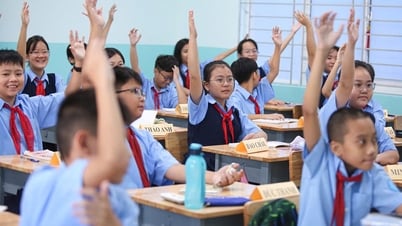






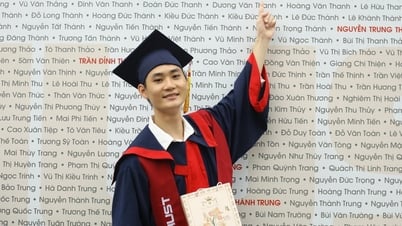
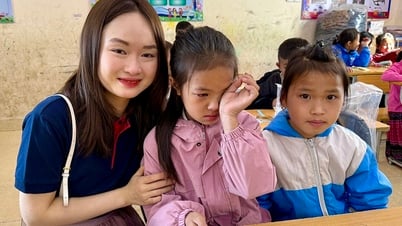









































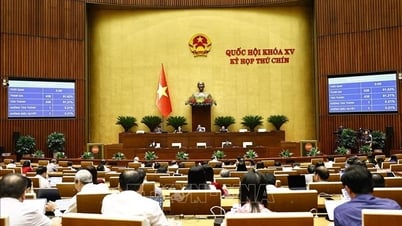













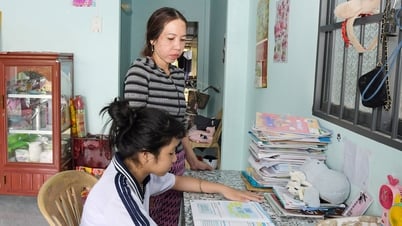

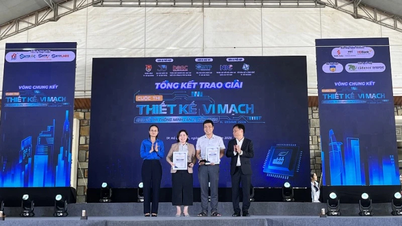



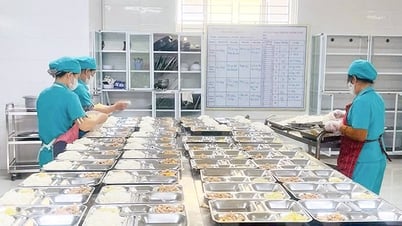












Comment (0)